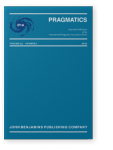Vol. 32:1 (2022) ► pp.28–53
Apology responses and gender differences in spoken British English
A corpus study
This study presents a corpus-based sociopragmatic investigation into apology responses (ARs) and gender differences in ARs in spoken British English. Using data taken from the recently released Spoken BNC2014, the investigation leads to an adjusted taxonomy of ARs which comprises five categories and several sub-categories. The investigation shows that ‘Lack of response’ is the most typical response, followed by ‘Acceptance’, ‘Rejection’, ‘Evasion’, and ‘Acknowledgement’. The results are discussed in relation to the process of attenuation that apologies have undergone (e.g. Jucker 2019), i.e. apologies are becoming more routinised and less meaningful. The proposed taxonomy is subsequently used to examine the extent to which male and female recipients respond to apologies differently. While the investigation suggests no significant differences in ARs across genders, it has been observed that there is some correlation between ARs and the gender of the apologiser. Finally, the implications and applications of the study are briefly discussed.
Article outline
- 1.Introduction
- 2.Literature review
- 3.Corpus and methodology
- 4.Towards a refined taxonomy of ARs
- 5.Gender differences in apology responses
- 6.Conclusion
- Acknowledgements
- Notes
-
References
